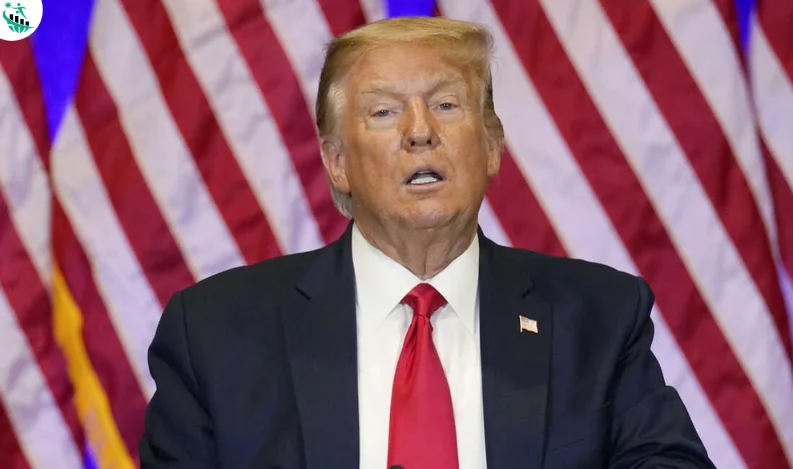
Trump Signs Executive Order Targeting U.S. Drug Prices, But Doubts Remain Over Impact
U.S. President Donald Trump signed an executive order Monday aiming to lower prescription drug costs by tying domestic prices to those paid in other countries. Though Trump described the measure as one of the most significant of his presidency, experts have cast doubt on whether the policy will deliver on its bold promises.
The plan, which revives and expands a concept from Trump’s first term, seeks to give the U.S. “Most Favoured Nation” (MFN) status in pharmaceutical pricing — requiring drug manufacturers to offer U.S. consumers the same prices they provide to countries where medications cost far less.
“This is about fairness,” Trump said at a White House event. “American patients should not be subsidizing the rest of the world’s healthcare.”
Trump claimed the order could reduce drug costs by as much as 30% to 80%, potentially even “90%,” though he did not specify how these cuts would be implemented or when patients might see the benefits.
Prescription Prices Under Scrutiny
The United States pays significantly more for prescription drugs than many other developed nations. A 2021 report by the Government Accountability Office found that U.S. drug prices were, on average, two to four times higher than in countries such as Canada, Australia, and France.
Efforts to tackle high prices have come from both political parties. During his term, President Joe Biden backed measures to reduce costs through the Inflation Reduction Act, while Trump and Democratic candidates such as Bernie Sanders have made the issue central to their campaigns.
During Monday’s event, Health Secretary Robert F. Kennedy Jr. echoed bipartisan frustration with drug companies, blaming lobbying influence for decades of stalled reform. “The drug lobby is the strongest in Washington,” Trump added.
What the Order Says — and Doesn’t
The executive order instructs federal agencies, including the Department of Health and Human Services (HHS), to enter negotiations with pharmaceutical firms and develop pricing benchmarks. It also directs U.S. officials to examine foreign drug pricing practices for signs of “unreasonable or discriminatory” effects on U.S. consumers.
Additionally, the order proposes direct-to-consumer sales, bypassing pharmacy benefit managers and insurers, and revives efforts to import cheaper medications from abroad. However, earlier attempts to legalize drug imports have encountered regulatory and safety concerns.
While the MFN model sounds straightforward, health experts warn that implementation will be difficult. Key terms remain undefined, enforcement mechanisms are unclear, and drugmakers may resist compliance.
Industry and Market Response
Initial fears of a crackdown sent pharmaceutical stocks downward, but markets quickly recovered after the order’s limited scope became clearer. Shares in major companies like Pfizer, Eli Lilly, and GSK bounced back by the end of trading.
The industry’s leading trade groups have strongly opposed the MFN framework. PhRMA President Stephen Ubl called the measure “a bad deal for American patients,” arguing that importing prices from socialized healthcare systems would stifle innovation.
John Crowley, head of the Biotechnology Innovation Organization, said the order threatens to harm small- and mid-sized biotech firms by limiting their ability to fund new drug development.
Still, others dismissed these claims. Prof. Alan Sager, a health policy expert at Boston University, noted that research costs are typically incurred before profits are realized. He suggested that alternative funding models, such as offering prizes for breakthrough treatments, could help reduce reliance on high prices.
“This is rhetoric, not reality,” Sager said. “Will the companies act? Maybe. Will they claim they’re acting? Certainly.”
Challenges Ahead
The order may also encounter legal and legislative hurdles. Similar proposals under Trump’s first term were struck down in court. And while the current policy broadens its target to include commercial markets alongside Medicare and Medicaid, experts believe that congressional approval would likely be required for many of the changes to stick.
There are also international implications. Some analysts warn that companies could exit smaller markets where they are forced to offer lower prices in order to protect profit margins in the U.S. Others caution that tariffs — which Trump has threatened on drug imports — could ironically raise prices further.
Public Reaction and Political Stakes
Polls consistently show that high drug costs remain one of the most pressing concerns for American voters. Advocacy groups like AARP welcomed Trump’s move as a positive step, though they cautioned that true reform would depend on execution.
C. Michael White, professor of pharmacy at the University of Connecticut, said the impact on most Americans would likely be limited. “But any effort to promote transparency and reduce costs is a step in the right direction,” he added.
Whether Trump remains committed to the issue is another open question. “This policy needs sustained attention,” said Prof. Sager. “The public should watch closely to see if that happens.”



Recent Comments:
No comments yet.